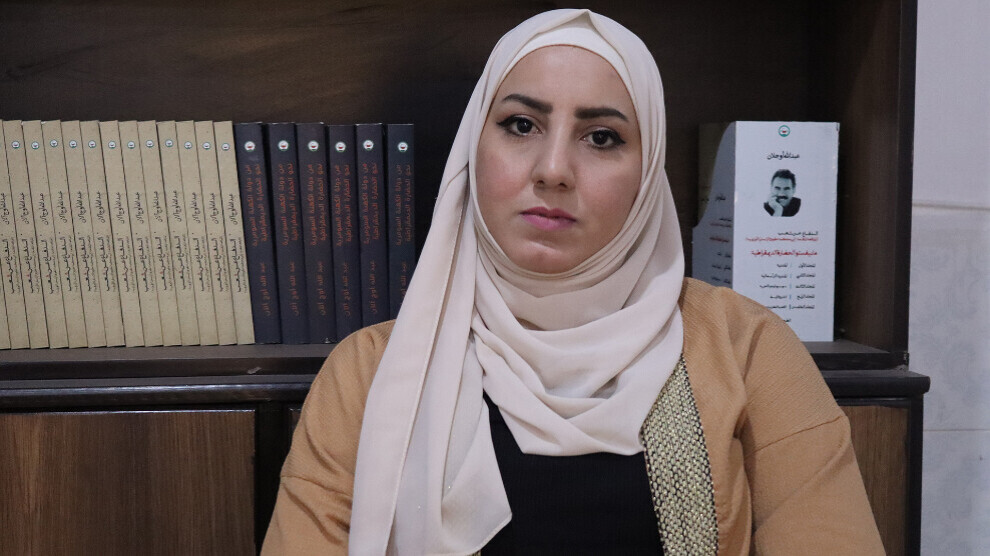Conspiracy and Resistance: A 27-Year Struggle Between War and Peace
Aysha Jawish, a member of the Abdullah Öcalan Academy for Social Sciences in Raqqa, describes Öcalan’s recent “Call for Peace and a Democratic Society” as “the key to resolving the ongoing conflicts in the Middle East.”

Nour Al-Ahmad
Raqqa — Twenty-seven years have passed since the international conspiracy that led to the capture and imprisonment of Abdullah Öcalan, the Kurdish leader whose vision for peace and democracy continues to stir debate across the Middle East. Despite meeting the human rights criteria for release—being over 70 years old and having spent more than 20 years in prison—Öcalan remains behind bars, a fact that continues to draw sharp criticism from rights advocates and observers.
A Call for “Peace and a Democratic Society”
Aysha Jawish, a member of the Abdullah Öcalan Academy for Social Sciences in Raqqa, describes Öcalan’s recent “Call for Peace and a Democratic Society” as “the key to resolving the ongoing conflicts in the Middle East.” She emphasizes the need to grant him the “right to hope”—a legal principle in international human rights law that guarantees elderly prisoners or those who have served long sentences a chance at release.
October 9 marks the anniversary of the 1998 international conspiracy that forced Öcalan out of Syria under Turkish pressure. Months later, on February 15, 1999, he was captured in Nairobi, Kenya, and transferred to the Turkish island prison of İmralı, where he has been held ever since under conditions of near-total isolation.
Despite the severe restrictions imposed on him—long periods without access to lawyers or family—Öcalan has continued to advocate for peace. In February this year, he renewed his call for a democratic and peaceful solution to the region’s crises, even proposing to dismantle the armed structure of the Kurdistan Workers’ Party (PKK) as a step toward reconciliation. But Turkey, critics say, has failed to reciprocate.
“His Ideas Threaten Systems of Power and Capitalism”
Jawish argues that Öcalan’s imprisonment was never just about security or politics—it was about silencing a philosophy.
“The conspiracy was planned internationally and ended with his imprisonment on İmralı Island,” she said. “The goal was to suppress his universal vision. Authoritarian regimes fear Öcalan’s ideas because they challenge systems of domination and capitalist control.”
For nearly three decades, Öcalan has lived under intense isolation. Even access to basic tools like a pen has been denied at times, she explained. “This is a clear violation of human rights principles,” Jawish added. “International law states that a prisoner over 70 or one who has served 20 years must be given the right to hope. Abdullah Öcalan meets both conditions, yet he remains imprisoned.”
Global Calls for Justice Ignored
Numerous humanitarian, community, and political initiatives have called for Öcalan’s release, gathering petitions and organizing campaigns worldwide. Still, Jawish says, “the international community continues to turn a blind eye.”
Turkey’s Silence on the Peace Process
Öcalan’s “Call for Peace and a Democratic Society” was welcomed both locally and internationally. “It brought the Kurdish issue and the vision of a democratic society back to the global stage,” Jawish explained. “At a time when Turkey is consumed by internal division and ongoing military campaigns in Kurdistan’s mountains, Öcalan offers a political—not military—solution.”
She emphasized that his message went beyond Kurdish concerns:
“He envisions a democratic Syria where peace prevails. He believes that deep social and historical issues cannot be solved by force, but through law and justice that respect all communities.”
Messages of Unity and Social Solidarity
In his letters and statements, Öcalan addressed nearly every segment of society—Arab tribes, women, youth, and religious minorities such as the Yazidis. His approach, Jawish noted, highlights his deep commitment to social unity and inclusive democracy, free of discrimination or exclusion.
“He called on Arab tribes to stand against division and conflict, sent a message to women on International Women’s Day emphasizing their leadership role, and spoke to the youth and the Yazidi community after their 2014 tragedy,” she said.
Öcalan’s message to women, in particular, inspired many to strengthen their political and social engagement. “Since his call, women have taken a leading role in shaping this new phase of transformation, drawing strength from the spirit of the July 19 Revolution,” Jawish observed.
“We Will Not Lose Hope”
Concluding her remarks, Jawish addressed Öcalan directly:
“On this painful anniversary, we say that we have been liberated through your ideas. To be worthy of your sacrifices, we will not surrender and we will not lose hope in achieving your physical freedom. We will continue to fight for peace until it becomes a reality.”
Through her words—and through the persistence of those who share Öcalan’s vision—the struggle between war and peace continues to define a generation still seeking dignity, justice, and a democratic future in the heart of the Middle East.
